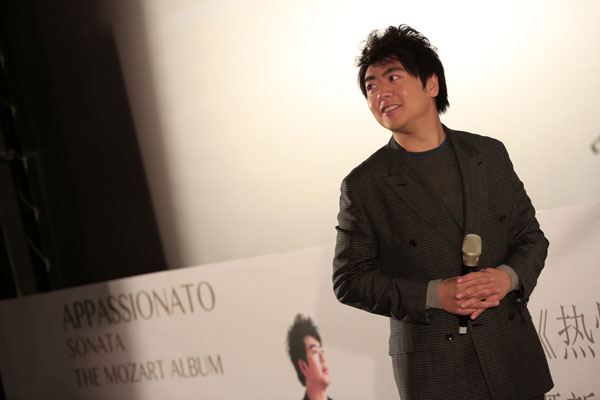 |
|
Chinese pianist Lang Lang.[Photo provided to China Daily]
|
In 1981, five years after the "cultural revolution" (1966-76) ended, Western musicians such as Isaac Stern and Claudio Abbado were able to perform in China, and Graffman embarked on his first trip with a group of museum curators and collectors.
"It was quite another world. There was no cars, but millions of bicycles. In three weeks, we visited not only Beijing, Shanghai, Chengdu but smaller cities, including Yixing and Jingdezhen where Chinese porcelain was made," Graffman tells China Daily.
But during that trip, he received a phone call when he came to Beijing. It was from the Central Conservatory of Music. It was the conservatory's head who had heard that Graffman was in town and wanted to invite him to the conservatory.
"He spoke no English and I spoke a little Chinese. How could we talk? Then I realized, he was some 10 years older than me. At the time, Chinese musicians studied music in the former Soviet Union so I asked him if he did, and he said 'yes'. Then we talked in Russian," says Graffman, who is of Russian-Jewish descent.
He was taken to the conservatory where he met an American soprano who was doing a master program there.
Ever since, Graffman has returned to China almost every year but not all his trips were related to music. He usually spends weeks traveling through different provinces and regions to discover more about Chinese culture.
In 2004, he played in China for the first time, with China Philharmonic Orchestra under the baton of Russian-born Vladimir Ashkenazy. Then he returned a few times including for a recital at the Beijing Music Festival in 2009.
"If you hear all my students, you would know that they are all from the same teacher. But of course, they are all different (individuals)," he says. "Their approach to life and to music are different. But they are all very convincing because they are all talented."
